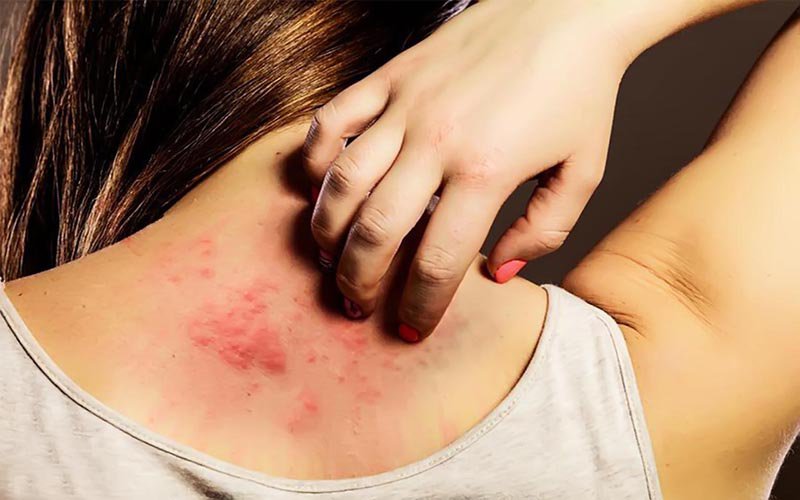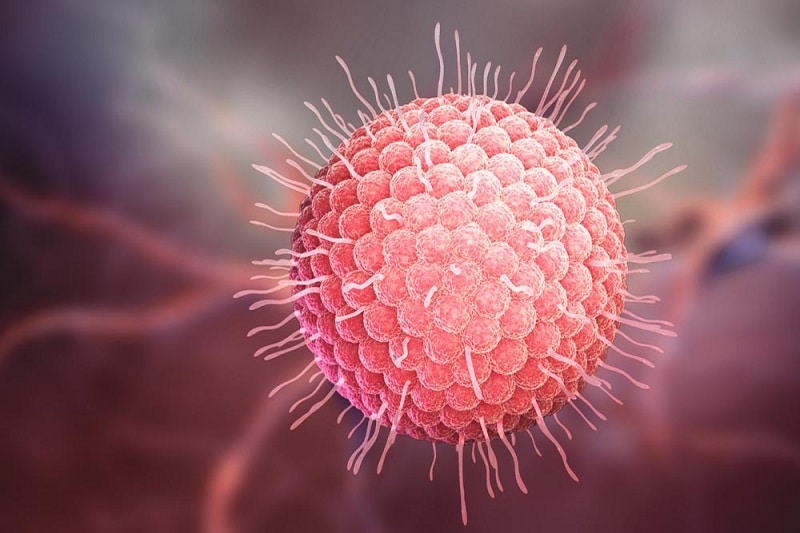Anal herpes is a condition that affects many people, yet information on it is often hard to come by. In this article, we will discuss what anal herpes is, how it manifests in the body and the various options for treatment. We will also explore both conventional and alternative approaches available to help manage symptoms and reduce flare-ups. Read on for more information about anal herpes and how you can manage it.
What is Anal Herpes?

Assuming you are referring to the sexually transmitted disease, anal herpes is caused by the herpes simplex virus. It is a contagious infection that can be passed through skin-to-skin contact, usually during sexual intercourse. The virus enters the body through tiny cuts or breaks in the skin around the anus and spreads easily.
Anal herpes can cause painful sores, itching, and burning around the anus. The sores can sometimes make it difficult to urinate or have a bowel movement. In severe cases, anal herpes can lead to more serious problems such as meningitis (inflammation of the membranes surrounding the brain and spinal cord).
There is no cure for anal herpes, but antiviral medications can help reduce the severity of symptoms and shorten the duration of outbreaks. There are also home remedies that can provide relief from pain and itchiness. If you think you may have anal herpes, see your doctor for a diagnosis and treatment options.
Anal herpes is a sexually transmitted infection that causes sores or blisters to form around the anus. It can caused by either the herpes simplex virus type 1 (HSV-1) or type 2 (HSV-2).
Herpes simplex virus type 1 is the same virus that causes cold sores on the mouth, and HSV-2 is the same virus that causes genital herpes. However, it is possible to have either type of herpes virus without having any symptoms.
When symptoms do occur, they can range from mild to severe and can include:
1 itching or burning around the anus
2 small blisters or sores on the anus
3 pain during bowel movements
4 swollen lymph nodes in the groin area
There is no cure for anal herpes, but there are treatments that can help lessen the symptoms. If you think you may have anal herpes, it’s important to see a doctor so they can make a diagnosis and discuss your treatment options with you.
Symptoms of Anal Herpes
Symptoms of anal herpes can include:
-Painful blisters or ulcers around the anus or in the genital area
-Itching and burning around the anus
-Discharge from the anus
-Pain during bowel movements
-Swollen lymph nodes in the groin area
If you experience any of these symptoms, it’s important to see a doctor as soon as possible. Anal herpes is a serious condition and can be very painful. There are treatments available, but it’s important to catch it early.
There are a few different symptoms of anal herpes. The most common symptom is painful sores or blisters in the anal area. These sores can be accompanied by other symptoms like fever, body aches, and swollen lymph nodes. Sometimes people with anal herpes also experience burning or itching around the anus.
If you think you might have anal herpes, it’s important to see a doctor right away. They can confirm the diagnosis and start you on treatment. Early treatment is important because it can help reduce the severity and duration of your symptoms. It can also help prevent the spread of the virus to other people.
Treatments for Anal Herpes
There are a few different options when it comes to treating anal herpes. The first is antiviral medication, which can help to reduce the severity and duration of outbreaks. Antiviral medication can be taken orally, or as a cream or ointment that is applied directly to the affected area.
Another option for treating anal herpes is immunotherapy. This involves injecting a person with a weakened form of the virus, which helps the body build up immunity to the virus and can reduce the frequency and severity of outbreaks.
Finally, there are some home remedies that may help to ease the symptoms of anal herpes. These include applying ice to the affected area, taking warm baths, and using over-the-counter topical creams or ointments.
There are a few different ways to treat anal herpes. The most common is through the use of antiviral medications. These can be taken in pill form, or as a cream or ointment that is applied directly to the sores.
Other treatments for anal herpes include home remedies such as ice packs and warm baths. These can help to soothe the pain and discomfort associated with the sores. Some people also find that using topical creams or ointments that contain ingredients like zinc oxide can help to speed up the healing process.
If you have frequent or severe outbreaks of anal herpes, your doctor may prescribe oral antiviral medication to take on a daily basis. This can help to prevent future outbreaks from occurring, and can also make them less severe and shorter in duration when they do occur. In some cases, surgery may be necessary to remove particularly troublesome sores.
Prevention Methods Against Anal Herpes
Prevention methods against anal herpes are key in order to avoid contracting the virus. The most important method is to practice safe sex by using condoms or dental dams during all sexual activity. This includes oral, vaginal, and anal sex. It’s also important to avoid sharing any personal items that may have come into contact with someone else’s genitals, such as towels, washcloths, razor blades, or sex toys. If you have any cuts or open wounds on your body, it’s best to avoid sexual contact until they have healed. If you or your partner has an active outbreak of genital herpes, it’s important to abstain from all sexual activity until the sore have completely healed.
There are a few things you can do to prevent anal herpes. One is to use a condom every time you have anal sex. This will help reduce your risk of getting the virus from your partner. Another is to avoid having anal sex with someone who has an active outbreak. If you do have anal sex with someone who has herpes, it’s important to use a condom and plenty of lubricant to reduce your risk of getting the virus.
You can also help prevent the spread of anal herpes by not sharing towels or other personal items with someone who has the virus. If you have anal herpes, it’s important to take steps to prevent spreading the virus to others. This includes not having sex when you have an active outbreak, using condoms, and avoiding sharing towels or other personal items.
Conclusion
Anal herpes can be a very uncomfortable and embarrassing condition, but it is important to remember that you are not alone. With the right treatment, even if it does not cure your infection, you can still manage symptoms so that they do not interfere with your daily life. If you are concerned about anal herpes or think you may have contracted it, make sure to talk to a doctor and get tested as soon as possible. Knowing what causes anal herpes and how to protect yourself from contracting an infection can help reduce the risk of getting infected in the future.
This is a common, yet often misunderstood condition. However, with the right information and support, it’s possible to manage your symptoms and reduce the risk of spreading anal herpes to others. If you think you may have anal herpes or are worried about being exposed to the virus, speak with your doctor for an accurate diagnosis and treatment plan. With proper care, you can be confident in taking steps towards better health and wellbeing.

